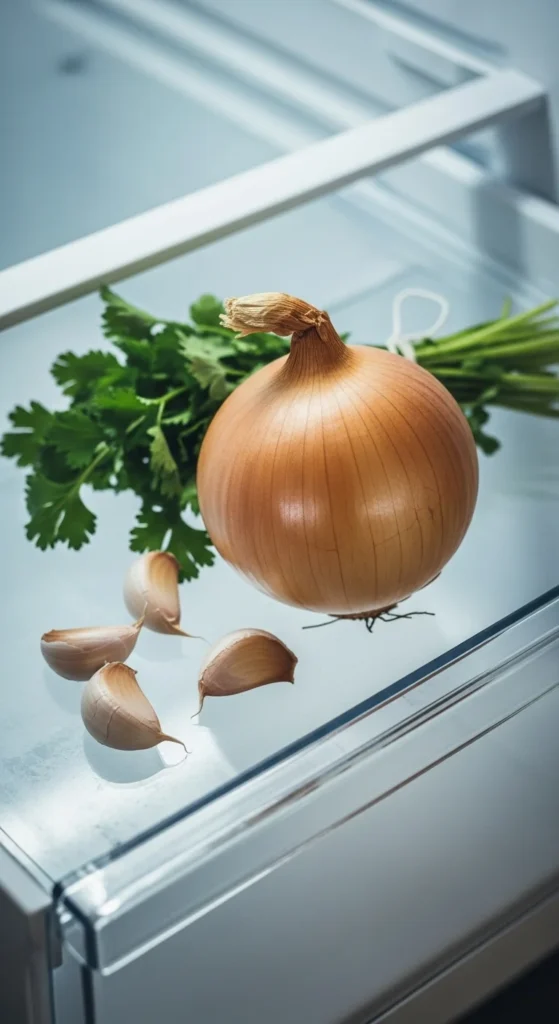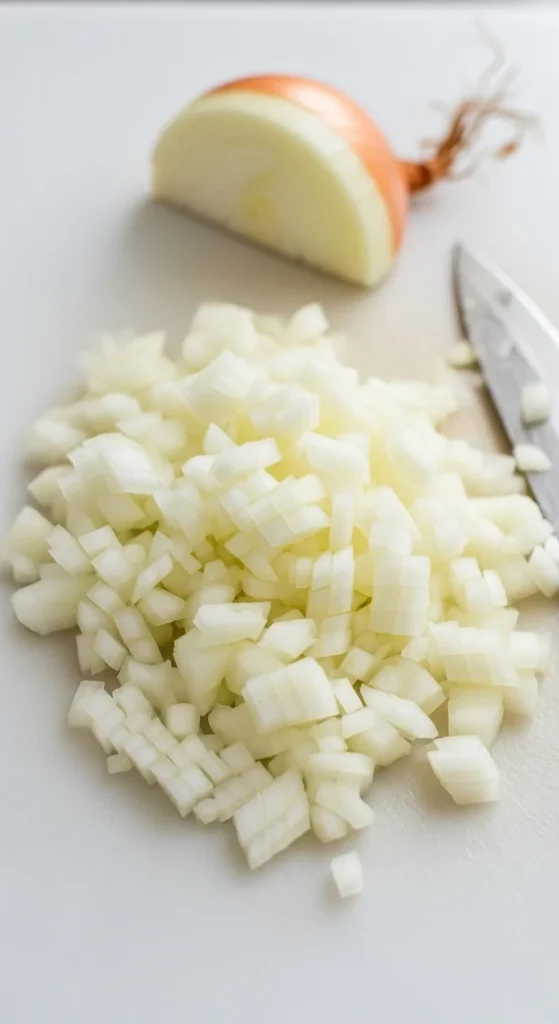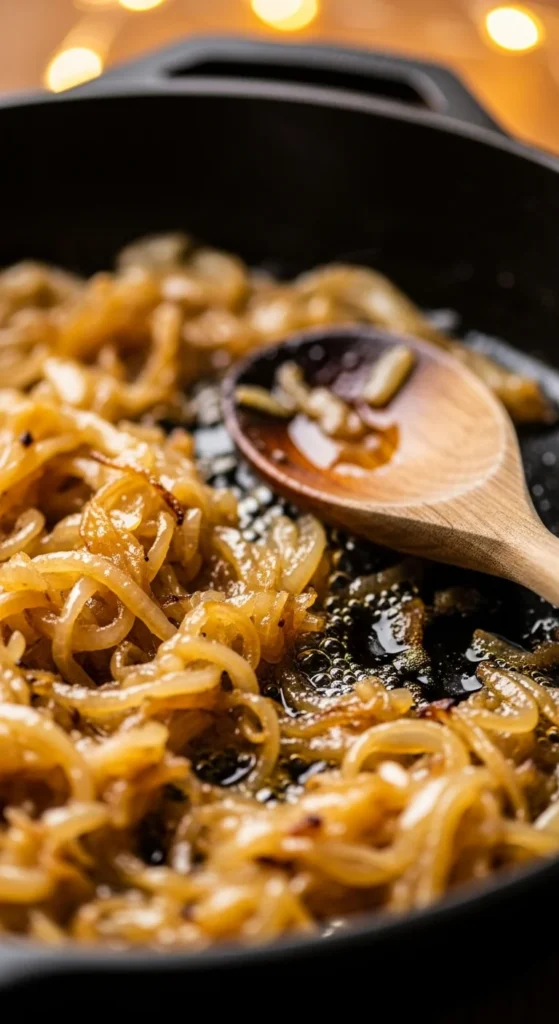We’ve all been there — standing at the counter with tears streaming down our face, wondering how a simple onion could defeat us. Chopping onions shouldn’t feel like a tearful breakup, and the good news is, it doesn’t have to. With a few smart tricks (and a little science), you can chop onions quickly, safely, and — most importantly — tear-free.

Why Onions Make You Cry
Before we stop the tears, let’s understand why they happen in the first place. When you slice into an onion, it releases a compound called syn-Propanethial-S-oxide — a mouthful of chemistry that floats up to your eyes and reacts with your tear glands.
That’s what causes the stinging, watery mess. The trick is to minimize how much of that compound escapes — and how much reaches your face.
Step 1: Chill the Onion First
Cold slows down the chemical reaction that releases those eye-burning gases.
Here’s how to do it:
- Pop your onion in the fridge for 30 minutes before cutting.
- In a hurry? Stick it in the freezer for 10 minutes.
This quick chill keeps the onion juices thicker and less likely to vaporize.
Pro tip: Don’t freeze it too long or it’ll get mushy when you chop!

Step 2: Use a Sharp Knife (It Matters!)
A dull knife crushes the onion cells instead of slicing cleanly, releasing more of those tear-inducing gases. A sharp knife makes cleaner cuts and keeps the fumes to a minimum.
Bonus: It’s safer too — dull blades are more likely to slip.
Keep your knife sharp by using:
- A honing steel before each use.
- A whetstone or knife sharpener regularly.
If you chop onions often, investing in a good chef’s knife is absolutely worth it.
Step 3: Cut Near Ventilation or Running Water
Air movement helps carry away the onion fumes before they reach your eyes.
Try these quick fixes:
- Chop onions under your kitchen vent or range hood on high fan mode.
- Place your cutting board next to an open window.
- Or — old-school hack — cut onions under running cold water or near a small fan.
The water or airflow catches and disperses the gas, keeping it away from your face.

Step 4: Master the Cutting Technique
The way you slice the onion affects how much you cry. Follow this simple, efficient method:
- Slice off the stem end (the pointy side), but leave the root end intact — that’s where most of the sulfur compounds live.
- Cut the onion in half from top to bottom, through the root.
- Peel the skin off both halves.
- Lay one half flat on the board. Make horizontal slices, then vertical cuts, keeping the root end steady.
- Finally, chop down across the onion to dice it.
By leaving the root intact until the very end, you trap much of the gas inside the onion.

Step 5: Try These Clever “Tear-Free” Tricks
If you’re extra sensitive or cutting a mountain of onions, here are a few more kitchen hacks that actually work:
- Wear kitchen goggles: Yes, they look funny — but they block the fumes completely.
- Soak onions in cold water for 10 minutes before chopping. This dilutes the compounds that cause tears.
- Cut near a candle or gas flame: The heat can help burn off the gases as they’re released.
- Chew gum: Sounds odd, but it forces you to breathe through your mouth, keeping the fumes away from your eyes.
You might not need all of these — experiment to find your favorite method.
Step 6: Clean Up Quickly
Once your onions are chopped, clean your knife, cutting board, and hands right away. Onion residue continues releasing sulfur compounds even after you’ve finished cutting.
- Rinse everything in cold water first (hot water can intensify the smell).
- Then wash with soap and water to eliminate the scent completely.
If your hands still smell, rub them on stainless steel (like your sink faucet) — it helps neutralize the odor.

Bonus Tip: The Onion Type Matters
Not all onions are created equal when it comes to making you cry.
- Sweet onions (like Vidalia or Walla Walla) are milder and release fewer irritants.
- Red and white onions tend to pack more punch.
If you’re prepping onions for raw salads or guacamole, go for the sweeter varieties — your eyes (and taste buds) will thank you.
Final Thoughts
Chopping onions doesn’t have to be a tearful experience. A few simple tricks — cold onions, sharp knives, ventilation, and careful cuts — make all the difference. You’ll be slicing like a pro, eyes dry, ready to sauté, caramelize, or toss those perfect onion pieces into your favorite dish.




Leave a Reply